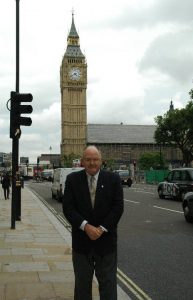[Note: Published by Al Arabiya on April 19, 2016]
Looking back at Obama’s ties with Saudi Arabia during his two terms
by Patrick W. Ryan
Al Arabiya, April 19, 2016
 When President Barack Obama travels to Saudi Arabia this week there will be more on his agenda than the announced US-GCC Summit with talks about security cooperation, intensifying pressure on ISIS, addressing regional conflicts and de-escalating regional and sectarian tensions, as announced by the White House last month.
When President Barack Obama travels to Saudi Arabia this week there will be more on his agenda than the announced US-GCC Summit with talks about security cooperation, intensifying pressure on ISIS, addressing regional conflicts and de-escalating regional and sectarian tensions, as announced by the White House last month.
Private voices in Riyadh in the recent past have fretted over Obama’s reliability on issues like the demise of Mubarak’s rule in Egypt, the turn-around on so-called red lines on Syria policy and the prospects of American rapprochement with Iran. This visit, however, will have tongues wagging over Obama’s frank observations of ties with Saudi Arabia made last month to The Atlantic’s Jeffrey Goldberg.
In the wide-ranging examination of the “Obama Doctrine” the president said he told Australian Prime Minister Malcolm Turnbull, in response to a question about Saudi Arabia as a friend of America, “It’s complicated.” Obama also expressed frustration with leaders he described as “free riders” who expected the United States to bear the burden in joint defense and leadership in areas of mutual interests. The comment was made about the United Kingdom’s contribution to NATO but the “free rider” theme carried over to conversations about other partners including Saudi Arabia.
It didn’t take long for Obama’s public candor to draw a public Saudi response. Prince Turki al-Faisal, no longer a government official but whose frequent opinion pieces reflect thinking in Riyadh, rebutted the American President’s comments. Turki’s March 14th Arab News op-ed, “Mr. Obama, we are not ‘free riders,” was a recitation of many positive actions taken by Saudi Arabia across the broad spectrum of the strategic relationship, suggesting that Obama was being “petulant” in response to Riyadh’s new assertiveness.
President Obama’s relationship with Saudi leaders wasn’t always fractious. In 2009, his first year in office, Obama raised hopes in the region with his choice of Al Arabiya for his first television interview as President, his speech in Ankara about America not being at war with Islam, and his “New Beginning” speech in Cairo which called for a new partnership with the Muslim world based on “mutual respect and mutual interest.” Those hopes began to evaporate when Obama’s efforts to bring Israelis and Palestinians together were stymied.
Washington’s decision to push President Hosni Mubarak to step aside when the Arab Spring arrived in Cairo in 2011 was the first major crack in the relationship with Riyadh and with King Abdullah. The divisiveness worsened with disagreements over Syria policy and how to deal with President Assad. Both Riyadh and Washington said he must go but no effective joint action was reached. Saudi officials barely masked their disdain for what they saw as a “feckless” American leader after Obama reversed course on military strikes against Syria over the use of sarin gas in 2013, a barbarous act he said would be a “red line” a year earlier.
Regard for Obama was further questioned with revelations of secret negotiations with Iran over a nuclear deal, the eventual nuclear agreement and the perception that Washington was forsaking Gulf Arabs for an opening with Tehran.
The visit is expected to be the last trip to Saudi Arabia for Obama who has nine months remaining in the White House. It comes at a time when both Washington and Riyadh are cobbling together new policies for dealing with serious regional threats, realigned power relationships and reevaluation of their respective interests.
The new leadership in Saudi Arabia and its emergence as a regional leader were highlighted by former U.S. Ambassador to Saudi Arabia Chas Freeman who remarked last year, “This coincidence offers an opportunity for the reinvention and reaffirmation of the seven-decade-long partnership between the United States and the Kingdom, adding, “For the sake of both Americans and Saudis, we must seize this opportunity or suffer the consequences.”
The close of the Obama Administration may bring satisfaction to some Gulf leaders and observers but there is also disquiet over the direction of U.S. Middle East policy after Americans choose Obama’s successor in November from a field of candidates that has many international leaders worried.
The long history of the Saudi-American relationship is replete with recurring squabbles and periods marked by substantial discord. Observers have likened it to a marriage where the partners are not immune from quarreling but in the end both agree they are better off together.
— Patrick W. Ryan is an independent analyst on Gulf affairs.